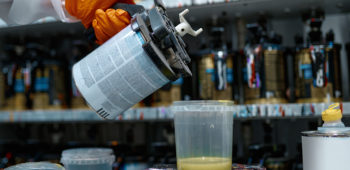What to Avoid to Drive Safely While Fasting
4 May, 2020

During fasting, our sleep and diet change from that of daily habit. These changes may affect the way you drive. Fortunately, there are things you can avoid to keep your focus on and prevent unwanted conditions when you drive while fasting. Check out a few helpful tips below.
Driving Fast
Driving fast can put not only you but also other drivers and passengers in danger. When you drive fast, you may encourage yourself to increase the driving speed even more until it passes the speed limit. Therefore, you should drive with ease and pay attention to and obey the speed rules. Remember to also keep your distance from the driver in front.
Drowsy Driving
Don’t force yourself to drive when you feel drowsy. If you are, quickly find a place nearby to park your car and get some rest before going ahead. Drowsy driving is very dangerous. If you close your eyes for just even a second, you can potentially cause a road accident.
Also read: What To Consider When Breaking Your Fast On The Road
Driving During Rush Hours
The road can be very packed during the fasting month, except for a few minutes before iftar time. Make sure to always be vigilant when driving during this time. Being food- and water-deprived, you can be more sensitive when you drive. If the condition is too frustrating, you may even yell at other drivers. Surely, you don’t want this to happen as it can make your fasting feel uneasy.
Your Car Is Not In Good Condition
The poor condition of the car can take up your time on the road. Fasting atmosphere can become irritating too, especially if the car suddenly breaks down and is damaged on the road. Therefore, make sure to check whether all components are functioning properly.
Also read: How To Stay Alert When Driving During Fasting
Fatty Food Consumption and Lack of Water
Reduce high-fat foods and drink enough water as much as you can. The lack of body fluids can make you dizzy and even dehydrated, and in return, your driving concentration can be lacking. Hence, remember to consume nutritious foods that contain carbs, proteins, and vitamins, such as fruits and vegetables, and remember to drink enough water at suhoor and iftar to help your body function optimally while fasting.



